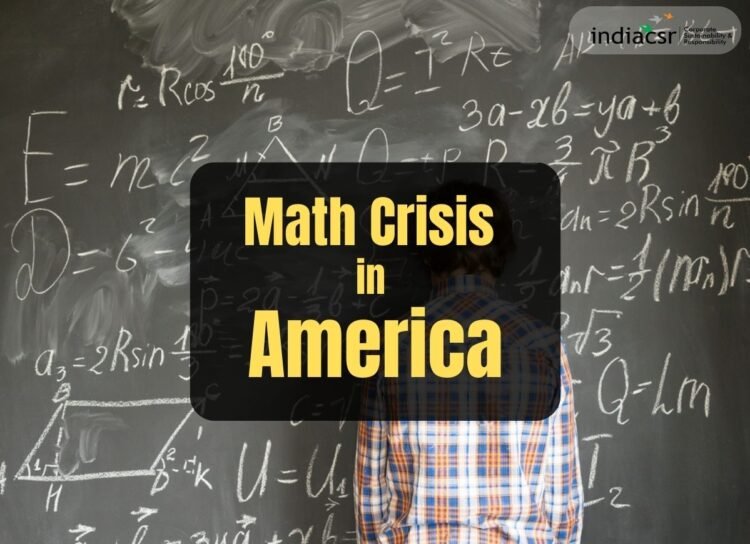The numerical inadequacy prevalent in the United States is not a mere educational concern; it’s a national crisis with far-reaching implications on economic competitiveness, innovation, and national security.
The United States, a global leader, finds itself in an educational predicament, grappling with a stark decline in mathematical proficiency among its youth. Kevin Tran, a high school student with a penchant for mathematics, stands as an exception in a country where many jest about their mathematical inadequacies. This decline in mathematical prowess is not merely a domestic concern but poses a formidable threat to the nation’s international economic competitiveness and national security.
The Importance of Mathematical Proficiency
Mathematics is the fulcrum of numerous professions, from engineering to computer science. The U.S.’s deteriorating performance in mathematics is unsettling for employers who view proficient individuals as the linchpin for maintaining technological supremacy and ensuring national security. A deficiency in mathematical competence is alarming as it jeopardizes America’s stature in technological innovation and hampers its ability to secure its interests.
Global Competitiveness at Stake
Jim Stigler, a distinguished psychology professor, warns that the impending technological advancements will likely originate from countries with robust intellectual capital, highlighting a critical shortfall in the U.S. The Defense Department substantiates this, urging an overhaul in STEM education, noting the vast disparity in STEM graduates between the U.S., China, and Russia.
The Educational Dilemma
The majority of American students are struggling to match their international counterparts in math proficiency, with the latest PISA tests revealing U.S. students trailing behind 36 other educational systems globally. This educational gap is contributing to foreign dominance in math-intensive graduate programs in U.S. universities, leaving American students unprepared to lead in fields pivotal for national growth and security.
The Economic Implications
The ramifications of poor math skills extend beyond academia, potentially diminishing earnings and obstructing the nation’s productivity and competitiveness. A prognostication by a Stanford economist reveals that unrectified declines in math proficiency during the pandemic could lead to reduced earnings for the current student generation, impacting individual and national economic prosperity.
Innovational Initiatives
Programs like the Bridge to Calculus at Northeastern are invaluable endeavors to mitigate this crisis, offering students like Kevin Tran an opportunity to hone their mathematical skills. These programs not only serve the students but also aid institutions in attracting domestic talent to their renowned STEM programs, fostering a generation capable of sustaining national development and security.
A Matter of Perspective
While the numerical crisis is evident, some opine that the U.S.’s unique approach to learning, fostering creativity and problem-solving skills, is globally sought after. Employers prioritize the adaptability and learning aptitude of individuals over their mathematical knowledge. This raises a crucial question: Is mathematical proficiency the sole determinant of a nation’s progress, or does the essence of innovation lie in the amalgamation of diverse learning approaches?
Conclusion
The numerical inadequacy prevalent in the United States is not a mere educational concern; it’s a national crisis with far-reaching implications on economic competitiveness, innovation, and national security. While initiatives aimed at fostering math proficiency are commendable, a holistic approach integrating diverse learning paradigms may be the key to maintaining America’s global leadership. Balancing mathematical proficiency with creative learning could pave the way for a resilient and innovative future.







